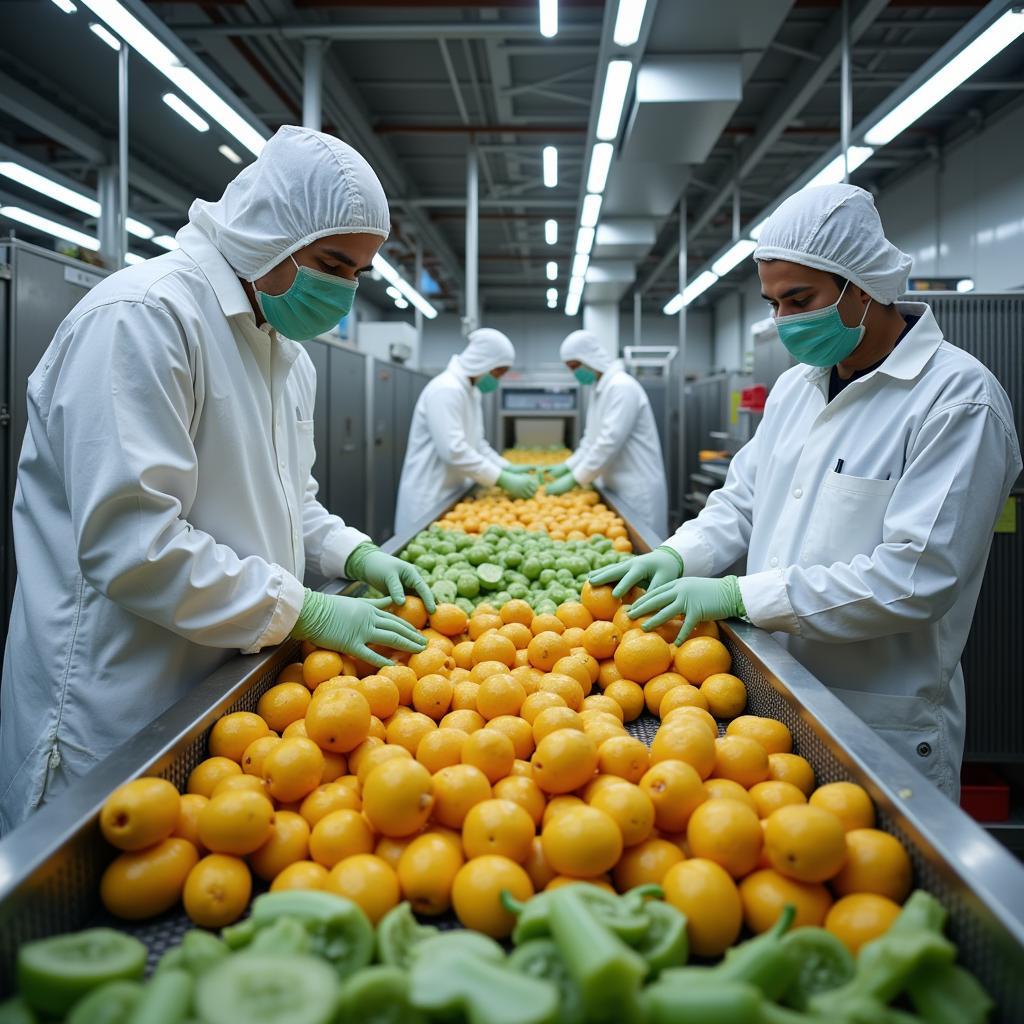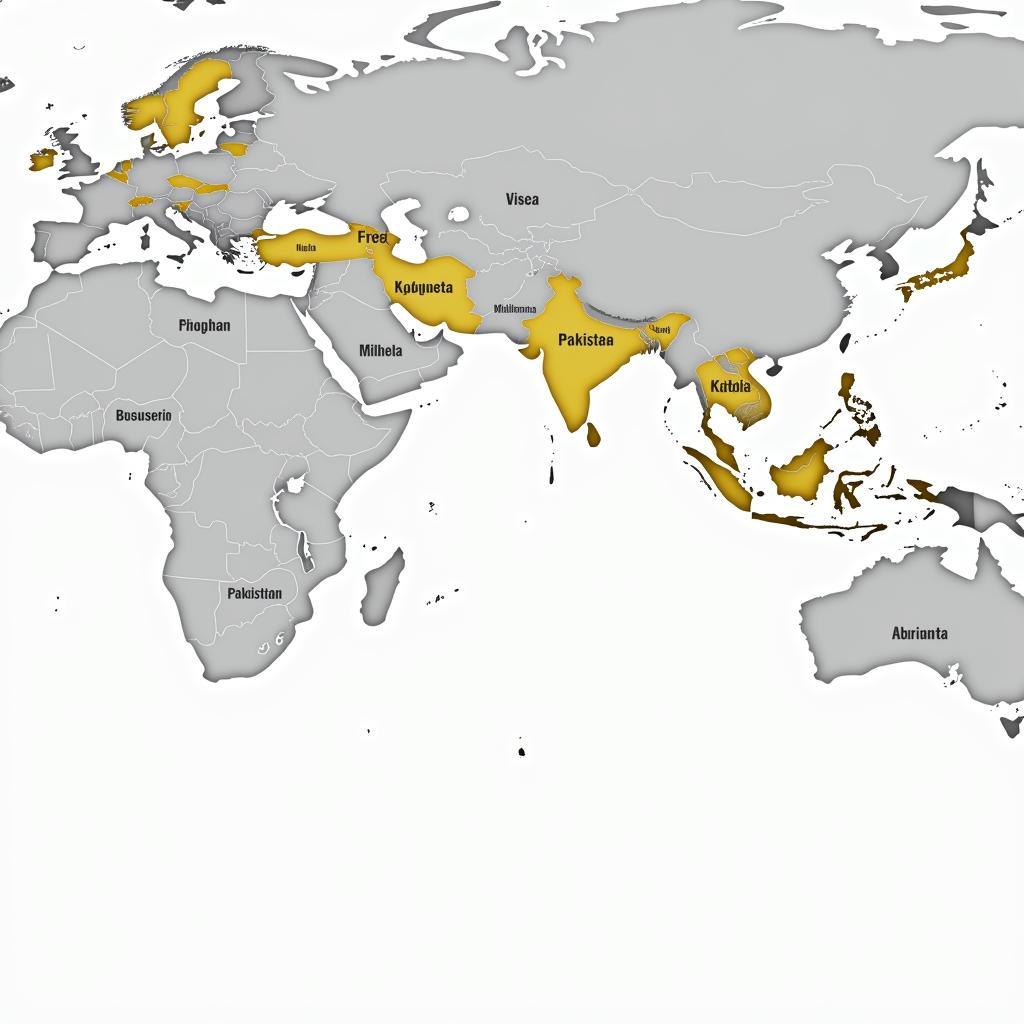Export leftovers in Pakistan? It might sound unconventional, but the concept of utilizing surplus food for export has the potential to revolutionize Pakistan’s food industry, address food waste, and boost the economy. This article explores the potential of exporting food leftovers in Pakistan, the challenges, and the potential benefits.
The Untapped Potential of Export Leftovers in Pakistan
Pakistan, like many developing nations, grapples with significant food waste. Tons of edible food are discarded daily, from households to restaurants and throughout the supply chain. This waste represents a lost opportunity, both economically and environmentally. Instead of discarding this surplus food, could Pakistan explore the potential of exporting these “leftovers” – properly processed and packaged – to international markets?
What Could Be Exported?
While the term “leftovers” might evoke images of discarded plates, the concept here is broader. It encompasses surplus food, byproducts of food processing, and even “ugly” produce that doesn’t meet aesthetic standards for the domestic market. This could include:
- Fruit and Vegetable Pulp: Leftover pulp from juice processing can be dried and exported as ingredients for other food products.
- Excess Agricultural Produce: Seasonal surpluses of fruits and vegetables can be processed and preserved for export.
- Byproducts of Meat Processing: Bones and other byproducts can be processed into animal feed or other valuable products.
- “Ugly” Produce: Fruits and vegetables that are perfectly edible but don’t meet supermarket aesthetic standards can be exported to markets where appearance is less critical.
Overcoming the Challenges: Safety and Logistics
Exporting food leftovers presents several challenges, primarily concerning food safety and logistics. Meeting international food safety standards is crucial. This requires investment in processing facilities, packaging, and rigorous quality control measures. Logistics, including cold storage and transportation, also pose a significant hurdle, especially for perishable goods.
Addressing Food Safety Concerns
Stringent adherence to international food safety regulations is paramount. This includes implementing HACCP (Hazard Analysis and Critical Control Points) systems, ensuring proper hygiene throughout the processing chain, and investing in testing and certification.
Streamlining Logistics
Efficient logistics are essential to ensure the quality and safety of exported food products. Investment in cold chain infrastructure, including refrigerated trucks and storage facilities, is critical. Furthermore, streamlining customs procedures and reducing bureaucratic hurdles can significantly improve the efficiency of the export process.
 Modern Food Processing Facility in Pakistan
Modern Food Processing Facility in Pakistan
The Economic and Environmental Benefits
Despite the challenges, the potential benefits of exporting food leftovers are substantial. It can:
- Reduce Food Waste: Diverting surplus food from landfills reduces environmental impact and minimizes the loss of valuable resources.
- Boost Agricultural Incomes: Farmers can earn additional income by selling surplus produce that would otherwise be wasted.
- Create Jobs: Processing and exporting food leftovers creates new employment opportunities in rural and urban areas.
- Improve Food Security: While exporting leftovers might seem counterintuitive to food security, the increased income generated can improve access to food for vulnerable populations.
- Enhance Pakistan’s Export Portfolio: Diversifying Pakistan’s export portfolio with value-added food products can strengthen the country’s economic position.
Conclusion: Turning Waste into Wealth
Exporting food leftovers in Pakistan presents a unique opportunity to address food waste, boost the economy, and improve livelihoods. While challenges exist, the potential benefits are significant. By investing in infrastructure, technology, and human capital, Pakistan can transform its food waste into a valuable resource and unlock a new avenue for economic growth.
FAQs
- What types of food leftovers can be exported?
- What are the main challenges in exporting food leftovers?
- How can food safety be ensured in the export process?
- What are the economic benefits of exporting food leftovers?
- How can the government support this initiative?
- What are the environmental benefits of reducing food waste through export?
- What international markets are potential destinations for these exports?
 Pakistan Food Exports Reaching Global Markets
Pakistan Food Exports Reaching Global Markets
For further assistance, please contact us at Phone: +923337849799, Email: [email protected], or visit our office at Dera Ghazi Khan Rd, Rakhni, Barkhan, Balochistan, Pakistan. We have a 24/7 customer service team available to assist you. You can also explore our other articles on food security and economic development in Pakistan.